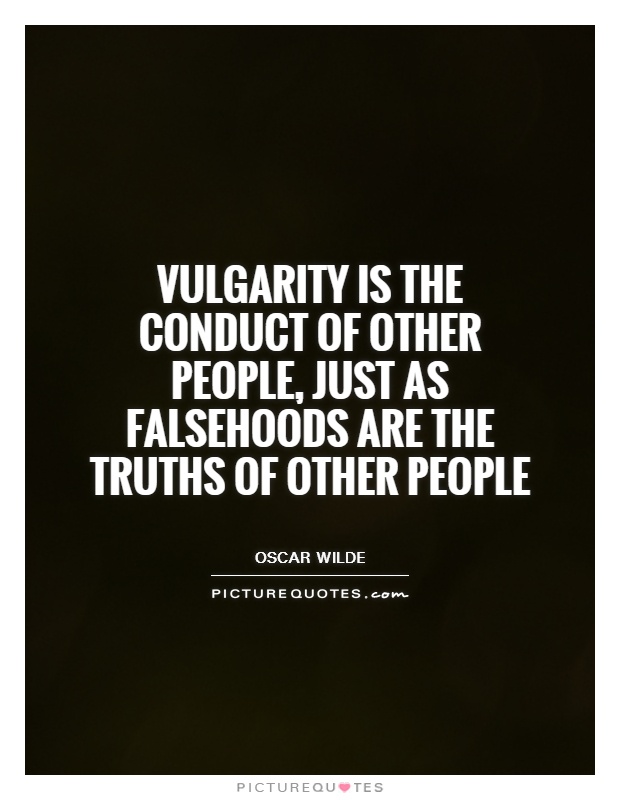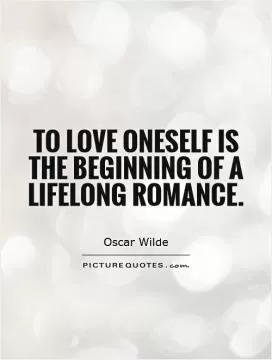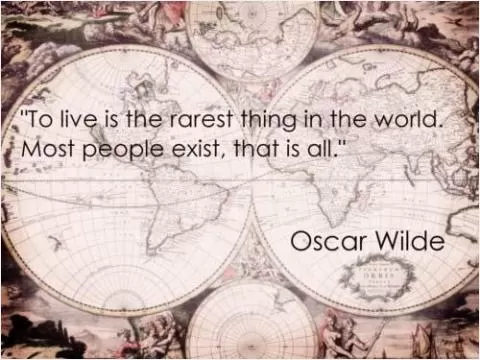Vulgarity is the conduct of other people, just as falsehoods are the truths of other people

Vulgarity is the conduct of other people, just as falsehoods are the truths of other people
Oscar Wilde, the renowned Irish playwright, poet, and author, was known for his wit, humor, and sharp observations on society. One of his most famous quotes, "Vulgarity is the conduct of other people, just as falsehoods are the truths of other people," perfectly encapsulates his views on social norms and the hypocrisy of society.In Wilde's time, the Victorian era, there were strict social codes and expectations that dictated how people should behave and interact with one another. However, Wilde was a rebel who challenged these conventions and often found himself at odds with the prevailing attitudes of the time. He believed that true vulgarity was not in the actions of individuals, but in the judgment and condemnation of those actions by others.
Wilde understood that what one person may consider vulgar or inappropriate, another may see as perfectly acceptable. He believed that people often projected their own insecurities and prejudices onto others, labeling them as vulgar or immoral simply because they did not conform to societal norms. In this way, falsehoods, or lies, were often accepted as truths by the majority, while those who dared to speak the truth were labeled as liars or troublemakers.
Wilde himself was no stranger to controversy and scandal. His flamboyant personality, unconventional lifestyle, and open homosexuality were seen as vulgar and immoral by many in Victorian society. However, Wilde refused to conform to the expectations of others and continued to live his life on his own terms. He embraced his own truth, even when it meant facing ridicule and persecution from those around him.












 Friendship Quotes
Friendship Quotes Love Quotes
Love Quotes Life Quotes
Life Quotes Funny Quotes
Funny Quotes Motivational Quotes
Motivational Quotes Inspirational Quotes
Inspirational Quotes